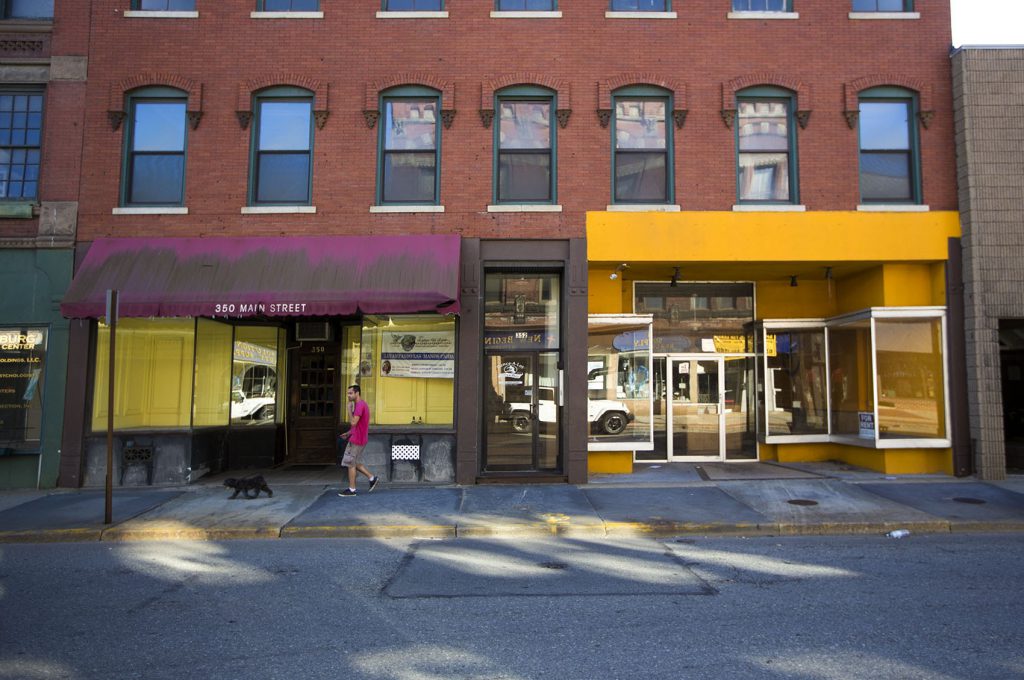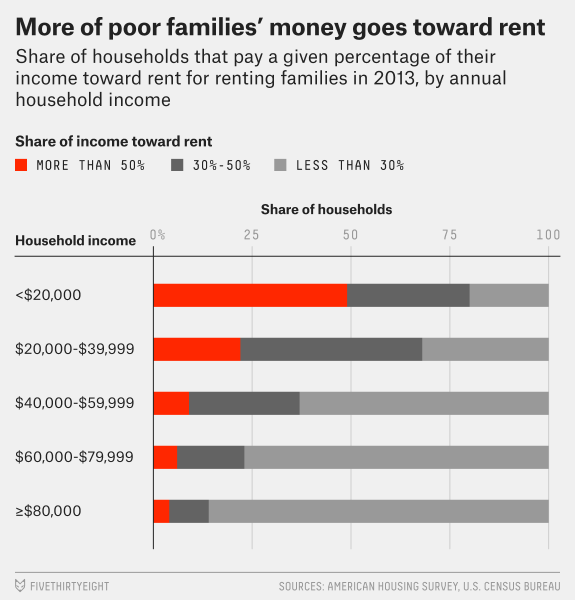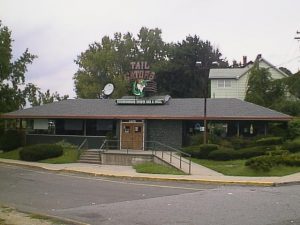Episode 8: A Leg Up


A man walks his dog in front of vacant commercial spaces along Main Street in Fitchburg, Mass. (Credit: Jesse Costa/WBUR)
While Boston has more than rebounded from the great recession, many of New England’s smaller cities are still feeling the pain of de-industrialization. But in Massachusetts, some of these former mill towns are plotting a comeback. We take a look at what two so-called Gateway Cities are doing to provide economic opportunity — and we consider how the high cost of rental housing in growing towns can keep some low-income New Englanders from getting a leg up.
In the second part of this episode, we continue our series about the biggest issues facing each of the New England states this election season. And finally, we remember an iconic New England restaurant chain as it fades from the region.
Gateway to the American Dream
Immigrant workers from Ireland and Germany were some of the first laborers in Lawrence, Massachusetts, filling the city’s 19th-century mill buildings with the hum of textile looms. Today, Lawrence has converted these buildings to refurbished work spaces for artists, innovators, and entrepreneurs. Shannon Dooling of WBUR brings us the story of how two Massachusetts towns are working to pull their economies into the 21st century.

Angie Jimenez is a graduate of Entrepreneurship for All, a business accelerator program in Lawrence. She’s starting a cooking school in a renovated mill building in the city. (Credit: Jesse Costa/WBUR)

Luis Feliciano cuts the hair of a young boy at the newly opened Brothers Barber Shop on Main Street in Fitchburg. (Credit: Jesse Costa/WBUR)
It seems that the closer you are to the boom that’s happening in Boston, the better off you are, and the same goes for cities in southwestern Connecticut, in the orbit of New York City. But economic booms bring high housing costs, sometimes far exceeding what lower-wage workers can afford. That’s especially problematic in many of New England’s coastal communities.
And as rent prices rise, assistance for those who can’t afford those rents is not keeping pace. We speak with Andrew Flowers, an economics writer at FiveThirtyEight, whose recent article on the subject profiled a family in South Portland, Maine.

(Credit: FiveThirtyEight)
Happy Fall! Can You Smell the Election?
In New Hampshire, a high-profile Senate race is racking up record spending. In Massachusetts, ballot questions like whether to legalize marijuana for recreational use, and whether to lift the state cap on charter schools, loom large. And in Maine, perhaps the biggest question is whether Governor LePage’s latest outbursts will tilt the state legislature’s power balance toward the Democrats.
Our panelists are Casey McDermott, digital reporter for New Hampshire Public Radio; Felice Belman, politics editor at the Boston Globe; and Bill Nemitz, columnist for the Portland Press Herald and the Maine Sunday Telegram. (If you missed last week’s conversation on Connecticut, Rhode Island, and Vermont, you can listen here).
Bye Bye, HoJo’s!
Howard Johnson’s began as a seaside stand on Wollaston Beach in Quincy, Massachusetts, where clams, along with rich ice cream, and hot dogs — called “frankforts” — helped make the place famous.

Hojoland.com features photos of “HoJo Ghosts” – buildings that were once Howard Johnson’s and have been converted. This one on Route 34 in Derby, CT is now a Tail Gators bar. (Credit: Hojoland.com)
The story goes that Bostonians came to love the place when Eugene O’Neill’s “Strange Interlude” was banned in Boston, and theatergoers went south to Quincy to see a performance… with a dinner intermission at the Howard Johnson’s across the street.
At its height, there were more than 1,000 HoJos locations — with their iconic orange roofs — on highway rest stops, and dotting the neighborhoods of New England, New York, and points beyond.
Today, Howard Johnson’s exists as a hotel chain, but there is just one HoJo’s restaurant left, in Lake George, New York. The last location in New England — in Bangor, Maine — closed earlier this month. To pay our respects, we invited Howard Mann, the man behind the website hojoland.com, to discuss the restaurant chain’s rich New England legacy.
About NEXT
NEXT is produced at WNPR.
Host: John Dankosky
Producer: Andrea Muraskin
Executive Producer: Catie Talarski
Digital Content Manager/Editor: Heather Brandon
Contributors to this episode: Shannon Dooling, Galen Koch, Annie Sinsabaugh
Music: Todd Merrell, “New England” by Goodnight Blue Moon, “This Must be the Place” by the Talking Heads, “Don’t Vote” by Cass McCombs, “Holland Tunnel” by John Phillips
We appreciate your feedback! Send praise, critique, suggestions, questions, story leads, and pictures of your favorite restaurant to next@wnpr.org.
